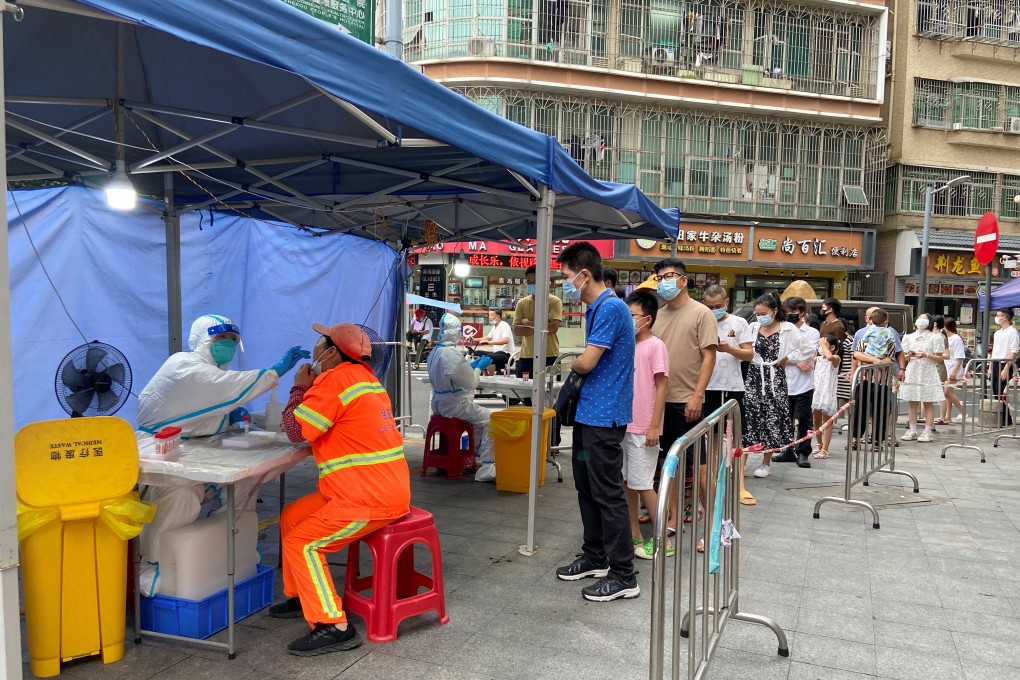Advertisement
Wider lockdowns in Shenzhen trigger exodus of travellers as China’s tech hub comes to a standstill
- Key districts in Shenzhen, including Nanshan, where Tencent Holdings is based, has been put under semi-lockdown, after Covid-19 cases rose
- Exhibitors travelling to a pet fair in Baoan district scrambled for last-minute flights upon learning that the event was cancelled
Reading Time:3 minutes
Why you can trust SCMP
19

China’s southern tech hub of Shenzhen stepped up its Covid-19 control measures on Thursday by putting key districts, including Nanshan, where many hi-tech firms are based, under semi-lockdown for at least three days.
The city of over 17 million escalated restrictions to a level unseen since March, when a week-long lockdown was imposed citywide to contain the few dozen cases that were detected daily. Local authorities recorded 62 cases on Wednesday, 27 of them asymptomatic – marking the highest daily tally in about half a year.
In contrast, life in neighbouring Hong Kong, where over 10,500 cases were logged on Thursday, remains largely uninterrupted, as tens of thousands of children returned to school for the start of a new academic year.
The Shenzhen government’s tightened controls are part of nationwide efforts to keep a lid on growing coronavirus outbreaks across the country – a task that is becoming increasingly difficult as more infectious variants emerge.
Advertisement
On Thursday afternoon, Chengdu – capital of southwestern Sichuan province – became the latest major Chinese city to lock down all of its 21 million residents, triggering frenzied last-minute shopping.
In Shenzhen’s Nanshan, where tech giant Tencent Holdings is headquartered, all large-scale events have been suspended from Thursday evening through Sunday. Non-essential businesses, such as karaoke rooms and cinemas, have been ordered to close, according to a government announcement. Supermarkets, farmers’ markets and restaurants have paused dine-in services.
Advertisement
All residents in the area are required to take a nucleic acid test every 24 hours and present a negative result to leave or enter any residential compound.
Similar restrictions have also been imposed in Baoan, a tech and exhibition hub, where Shenzhen’s airport is located. The districts of Futian, Luohu, Longgang and Longhua have been following similar rules since earlier this week.
Advertisement
Select Voice
Select Speed
1.00x
